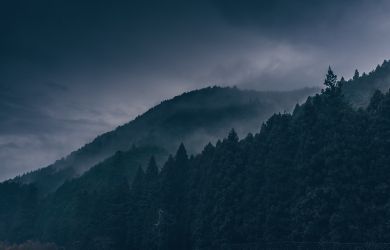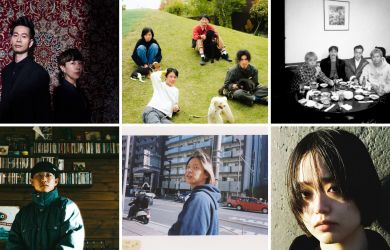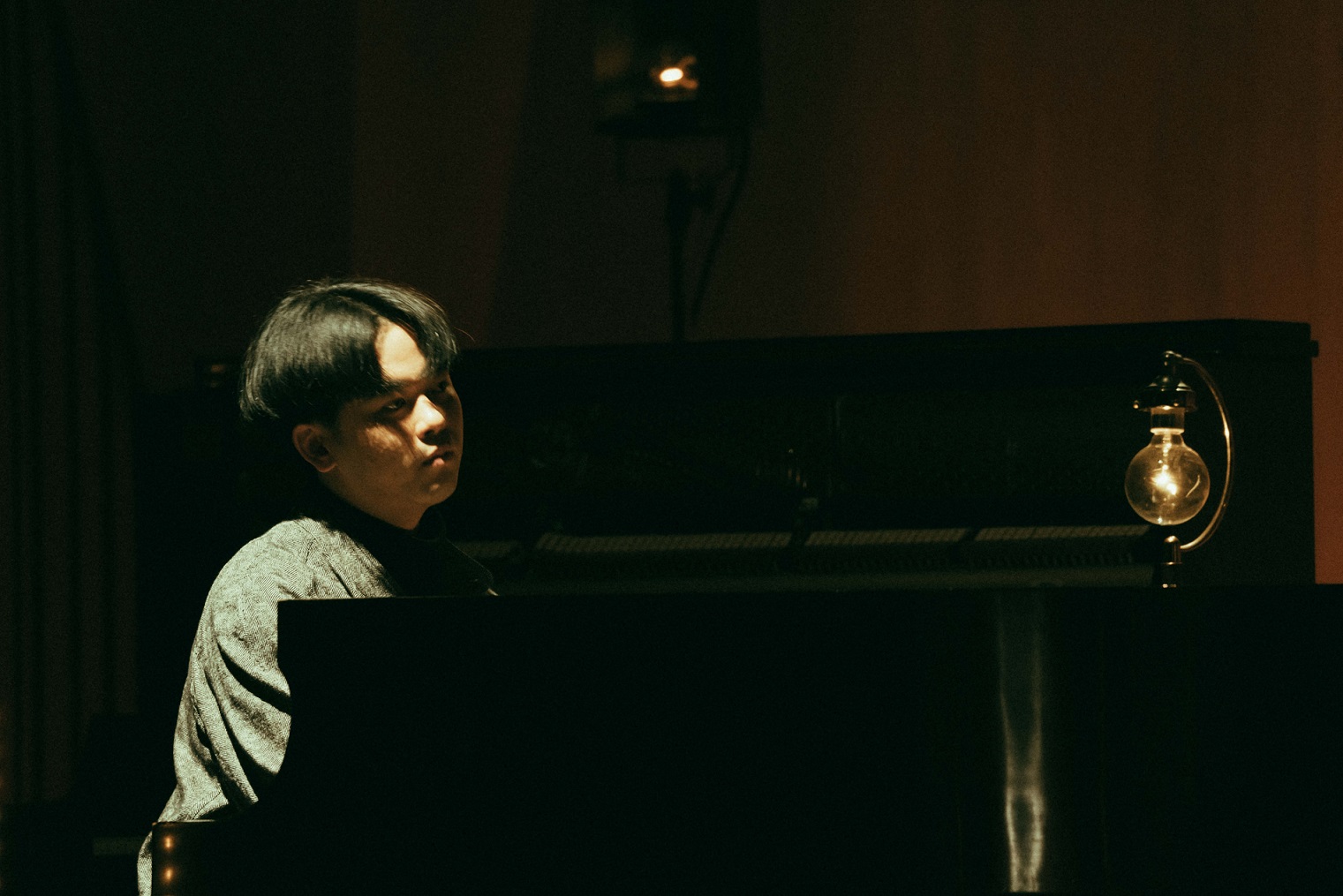
September 15, 2023
Resonating Nostalgia
Ayatake Ezaki's Solo Album Echoes Tokyo's Shadows
The first weekend of August saw a multitude of traditional Japanese summer festivals taking place across the city: Shibuya, Shimokitazawa, and Nakameguro were all beyond crowded. There was even a fireworks festival happening on the other side of Tokyo. Summer had declared its beginning, filling each area with enthusiasm. Couples, groups of friends, and tourists—everyone I saw had companions to enjoy their time with. I almost felt excluded, being alone and not participating in those major activities.
However, Ayatake Ezaki, also known as the keyboardist for the Japanese band WONK, creates an affirming place for anyone, whether alone or not, at Meguro Persimmon Hall. It’s an accessible concert hall for classical music lovers, where he released his first solo album, “The Beginning Night.” Despite Ezaki’s prominence as an artist in the pop music scene, he aimed for introspective music meant to be enjoyed alone through this album, inspired by Japanese novelist Junichiro Tanizaki’s 1934 essay “In Praise of Shadows.” In this essay, Tanizaki reflected on what he felt Japan had lost in modernization.
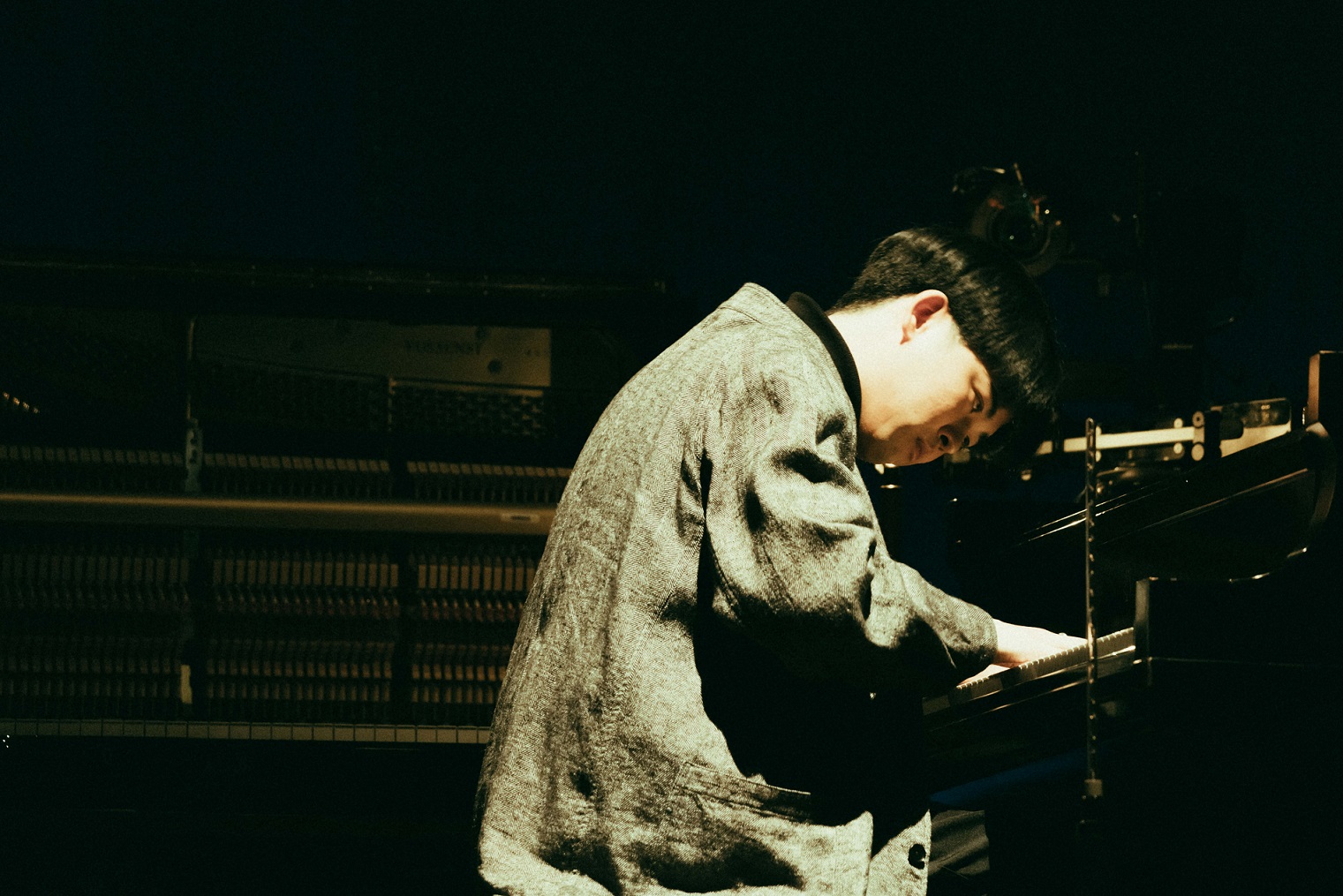
Live photos: Ryo Mitamura
Weaving through the crowds to reach the venue was stressful, and sweat dripped down my back in the 35-degree weather. But as I walked into the hall, it felt like I had entered a whole different world—dark and solemn. In the air-conditioned hall, there was nothing but Ezaki and two pianos. The stage was as simple as what Tanizaki had aspired to.
“Building a bridge between pop and classical music is one of my missions,” says Ezaki. Coming from a classical music background, he is one of the busiest musicians in the pop music scene, working with artists like Kenshi Yonezu, Vaundy, and millennium parade, a project by King Gnu’s Tsuneta Daiki. True to his words, he didn’t only perform the songs from the album, but also historically renowned pieces like “Kojo no Tsuki” and “Miagete Goran Yoru No Hoshi Wo.” With his unique arrangements, his solo debut show perfectly showcased the current position of this prominent artist who just turned 30.
Metropolis interviewed Ayatake Ezaki about his solo debut, the influence of Tanizaki, and his thoughts on Tokyo’s redevelopment.
Metropolis: You’re at the forefront of the pop music scene. How did you come to create a reflective solo album?
Ayatake Ezaki: Apart from my musical roots, I’ve been involved in the pop music scene, including rock, hip hop, and jazz, through my band WONK. However, I also grew up with introspective and instrumental music. As I turned 30, I wanted to reflect on my roots and come back to them.
M: The album’s theme is night. What role does the night play for you?
AE: I find I can focus best at night. Slack notifications don’t disturb me, and the city is quiet. It’s the only time I can delve into my thoughts. My room has a large window that offers views of the stars and the moon. I didn’t expect to appreciate nature and the changing seasons in Tokyo. Nothing disturbs me at night, so I can pay more attention.
M: Tanizaki’s “In Praise of Shadows” discusses his opinions on what Tokyo lost in modernization. How do you feel about today’s capital?
AE: Many redevelopment projects are scheduled in Tokyo, but some seem to replace the city’s culture rather than preserving it. Even though I’m not originally from Tokyo, I can’t accept the demolition of familiar scenery and culture. I’m not saying Tokyo should be like Kyoto, preserving old buildings as they are. A few redevelopments are great, such as the Kabukiza and Marunouchi areas.
M: On that note, Tokyo never sleeps. Neon lights shine everywhere, and convenience stores are brightly lit 24/7, serving as tourist attractions and part of the city’s infrastructure. However, for us as residents, it’s not calming. How do you feel about living in this metropolis?
AE: For instance, I wouldn’t prefer to watch movies in Shibuya or Shinjuku. Those areas never settle, preventing me from fully appreciating the afterglow of a film. The noisy, chaotic atmosphere takes over my mind as soon as I leave the cinema. I’d rather go to Roppongi or Hibiya to truly enjoy contemplative movies. This is another reason to respect the area’s culture and atmosphere.
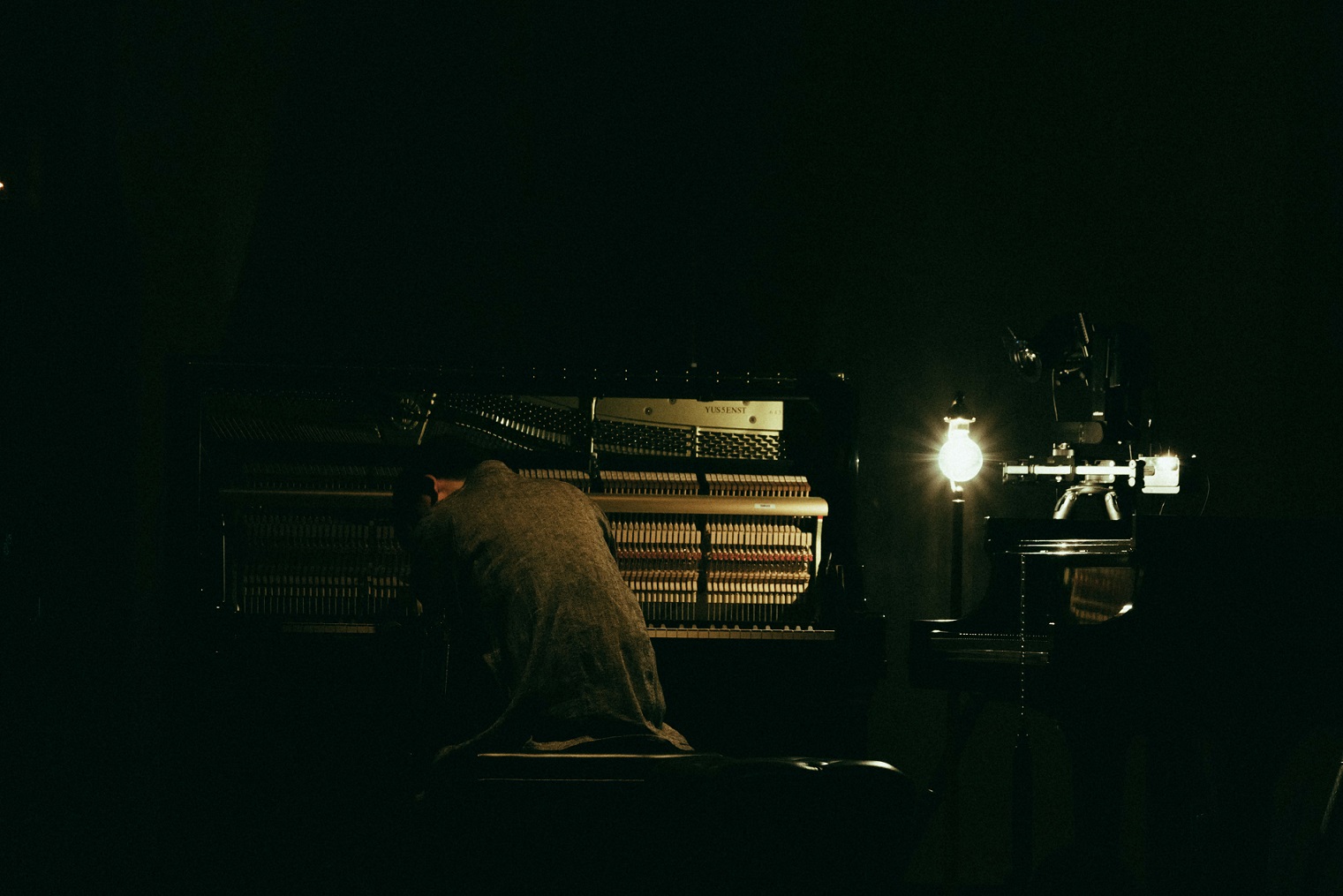
M: It’s interesting how spending time alone plays a significant role for you as a pop music artist with mass appeal.
AE: This album counters the current music scene where “sharing music” has become the norm. Young musicians often perform at big festivals even without much experience, instead of gradually building their fan base as it used to be. Also, songs are getting shorter, and guitar solo are less common due to social media. It’s an intriguing trend, but I wanted to distance myself from it and create something I genuinely love for my solo project.
M: I sensed a feeling of nostalgia from this album. Given what we’ve discussed, nostalgia seems to be intertwined with this album. Was that your intention while making it?
AE: Yes, neoclassicism was a cultural movement in classical music, and Tanizaki’s “In Praise of Shadows” seems to fit a similar context. Additionally, around the time of the Meiji Restoration, Japanese composers like Rentaro Taki and Kosaku Yamada sought ways to harmonize Japanese traditional music with the suddenly imported Western music. I applied their approach to this album. So, nostalgia is undoubtedly one of the elements present.
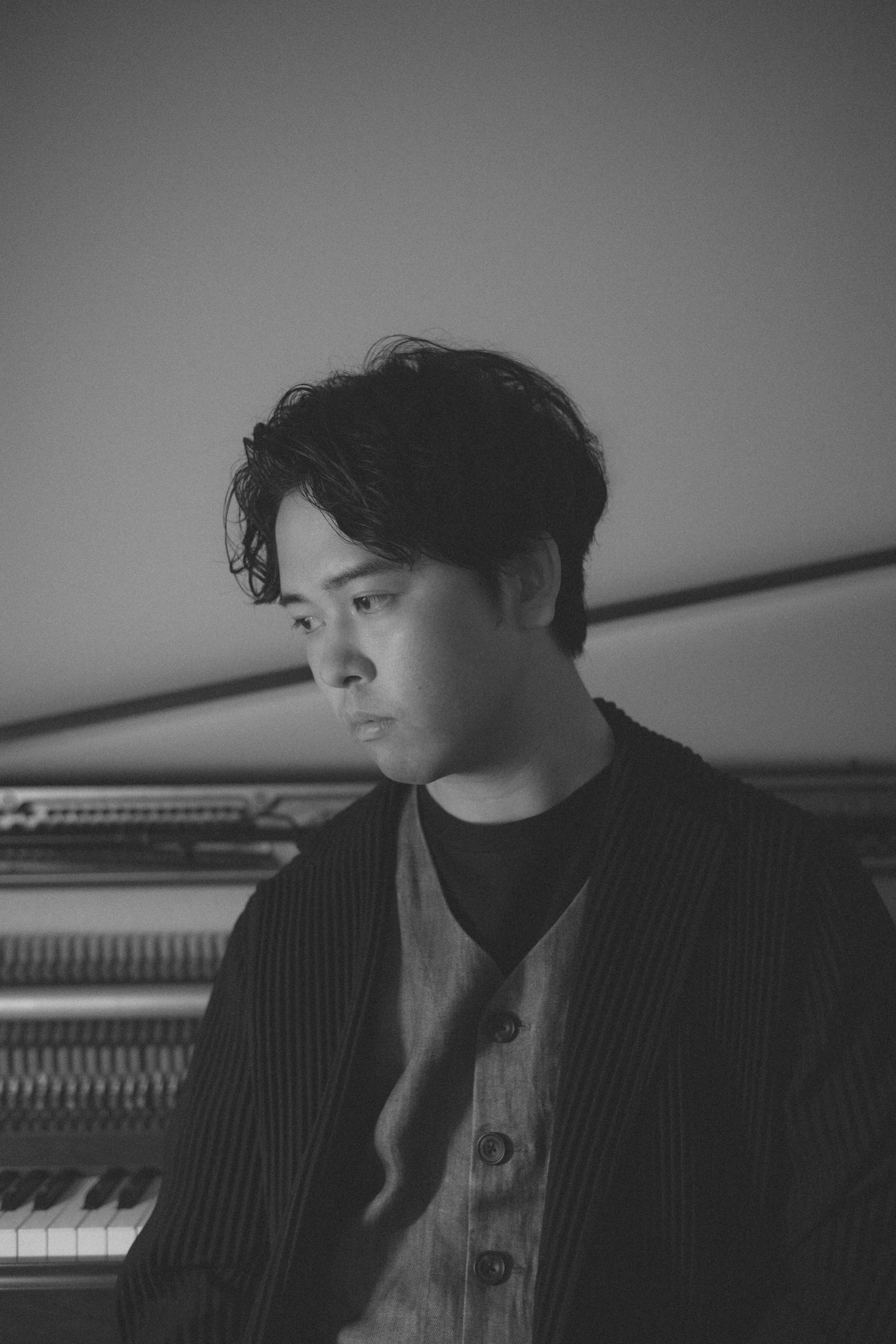
M: Is there a reason for having all-female guest vocals?
AE: When I worked with Manami Kakudo on one of the album songs, “Houei,” she pointed out that motherhood might be what I seek in music, something I hadn’t even considered. In fact, my earliest musical memories include the lullabies my mother used to sing to me; she also taught me how to play the piano. It made perfect sense. Music is comforting for me rather than a means to convey messages or stand out.
M: You came from a classical music background but are now a pop musician. Do you see yourself on a mission to build a bridge between the two genres?
AE: Absolutely, I want pop music fans to appreciate classical music and vice versa. I aim to break down the perception that classical concerts are exclusive. I hope to remain an alternative and have my music serve as an intermediary. It brings me joy to bring these different fields together.
【RELEASE INFORMATION】
Ayatake Ezaki “The Beginning Night”
